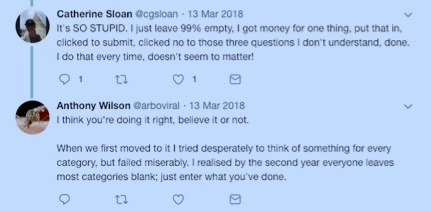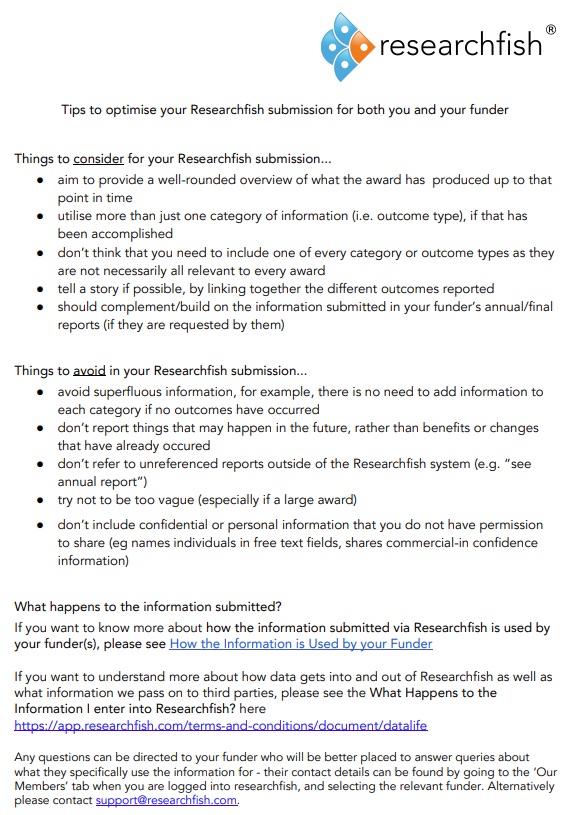Feeling overwhelmed by the thought of completing your Researchfish submission? Not sure what to include and what to leave out? Help to both of these and common submission questions can now be found in a new ‘Top Tips’ document that outlines how to best report the outcomes your research to your funder.

At Researchfish we encourage feedback from all users, whether they are principal investigators, students, administrators, research managers and so on. Various feedback mechanisms are permanently available (e.g. live chat, support email, representation on subgroups, our annual conference). Also, at the end of the UK multi-funder submission period in Feb/March 2018 we asked for feedback on the platform as part of the submission process.We received 6000 responses, including both positive feedback and of course some less so – both important to improve what we do. There were several common issues raised (see newsletter for more info); some about improvements to the system itself, some about the funders’ processes around the use of Researchfish and some of which relate to communications.One of the re-occurring issues raised by users was that they generally felt slightly overwhelmed and unsure what to include in their submission, for example:

“It’s difficult to understand what is expected.””I couldn’t think of something to put in each section.””How much detail should be included?””It’s a bit daunting as a first time user, I wasn’t sure where to start.”

We have therefore been working with the Researchfish Communications subgroup that has representation from both funders and research organisations, to outline things for users to consider whilst completing their Researchfish submission, as well as things to avoid.

The suggestions are relevant to all users entering outcomes information into the platform e.g. principal investigators, award holders, fellows, team members, and students. The tips include:
- You’re not expected to have one of every outcome type.
- Aim to provide a well rounded overview of what the award has produced up to that time.
- Try to tell a story if possible by referencing other outcomes that you’ve reported.
- Refer to other sources of further information (if they are available publicly).
We really hope that this is valuable to all users and are keen for it to evolve and improve so if you do have any feedback please let us know via support@researchfish.com.